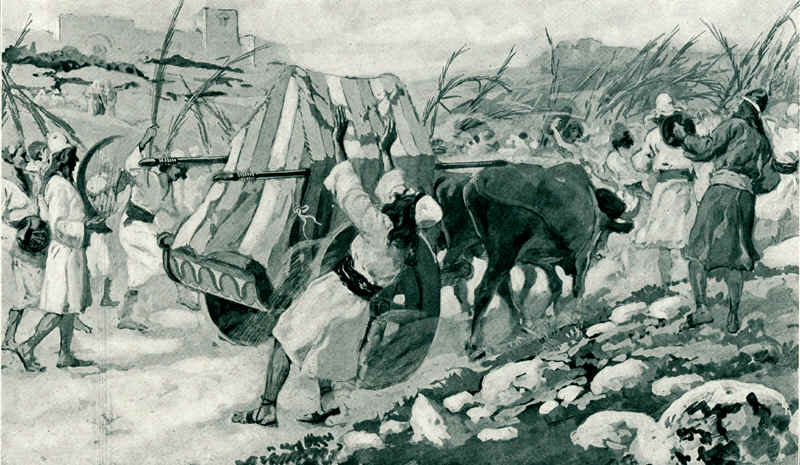Strictly speaking, the warning against inclining to the idolatry of the Canaanites (Deu 12:29-31) forms a transition from the enforcement of the true mode of worshipping Jehovah to the laws relating to tempters to idolatry and worshippers of idols (ch. 13).[13]
Therefore, until the previous chapter, God, through Moses, taught His people the right way of worshiping Him and now He moves to the discussion of idolatry and what ought not to be done in chapter 13. Lastly, Matthew Henry comments:
He therefore concludes (v. 32) with the same caution concerning the worship of God which he had before given concerning the word of God (ch. iv. 2): “You shall not add thereto any inventions of your own, under pretence of making the ordinance either more significant or more magnificent, nor diminish from it, under pretence of making it more easy and practicable, or of setting aside that which may be spared; but observe to do all that, and that only, which God has commanded.” We may then hope in our religious worship to obtain the divine acceptance when we observe the divine appointment. God will have his own work done in his own way.[14]
Uzzah And The Ark
The Ark of the Covenant fell into the hands of the Philistines and was later on delivered from their hands and they placed it in the house of Abinadab (1Sam. 7:1). Now as they are trying to bring the Ark back to Jerusalem from the house of Abinadab, a terrible thing happens. They had brought a new cart, with what it seems to be good intentions so that the Ark of God may not be defiled by an old cart. They were happy, singing and praising the Lord with music. But all the sudden, “the oxen stumbled” and without any intervention, this would have caused the Ark to fall into the dirt. With, what seems to be, all good intentions Uzzah puts his hand so that the Ark would not fall to the ground and is struck down by God. What’s the reason that God judged him so harshly?

Greg L. Price notes that there were three things which caused God’s judgment to come severely upon Uzzah:
The violation of God’s Regulative Principle was at least in three areas: (1) Uzza was apparently not a Levite (he was the son of Abinadab from Kirjath Jearim of the tribe of Judah, cf. 2 Sam. 7:1; 1 Chron. 2:50; 1 Chron 13:6-7) and according to Numbers 4:15 God commanded Levites to move the Ark (cf. 1 Chron. 15:2); (2) The Ark of God was not to be carried on a cart as the heathen Philistines had done in 1 Samuel 6:10-11 (Israel was not to follow the ways in which the heathens served their gods, Deut. 12:30-32). God had specifically commanded the Ark to be carried on the shoulders with poles (Ex. 25:12-15); and (3) The Ark of God was touched by Uzza, whereas God had commanded that no one touch it (Num. 4:15).[15]
Uzzah, along with David, violated the commandments of God concerning the Ark and the carrying thereof. God explicitly commanded that the Ark should be 1) carried by the Kohathites (Num. 3:30-31; 4:15; 7:9); 2) that it was to be carried by poles (Ex. 25:14; Num. 7:9), not upon a cart; and 3) the Ark was not to be touched (Num. 4:15). But Uzzah, David and the priests who should have known better, violated the commands of God. God did not strike them all but only punished Uzzah to demonstrate His holiness as He did with Nadab and Abihu. Right from the beginning, they went wrong in neglecting to inquire what God has actually said concerning how the A...









